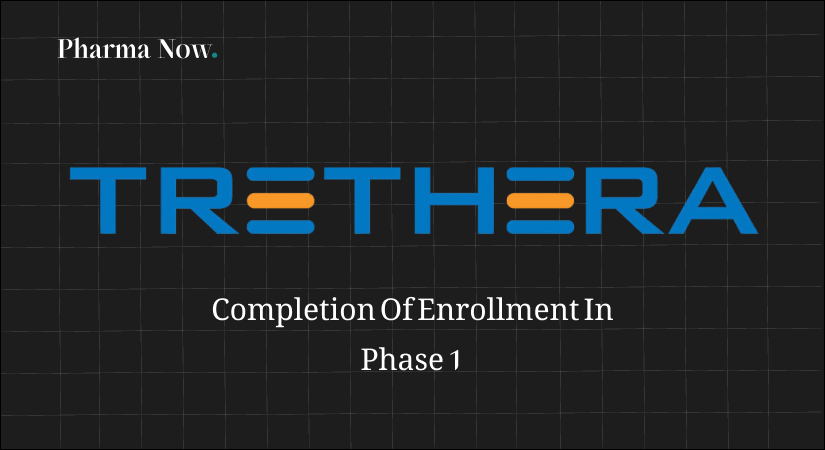Trethera Announces Completion Of Enrollment In Phase 1 Dose Escalation Study Targeting Solid Tumors
Trethera completes Phase 1 enrollment of TRE-515 for solid tumors, showing strong safety and early antitumor signals.
Breaking News
Sep 11, 2025
Simantini Singh Deo

Trethera Corporation, a clinical-stage biopharmaceutical company developing first-in-class therapies for cancer and autoimmune diseases, has announced the enrollment of the final patient in its Phase 1 dose-escalation trial for advanced solid tumors. The company reported that patients have tolerated increasing doses of its lead drug candidate, TRE-515, from 40 mg to 1,440 mg per day, a 36-fold increase without any dose-limiting toxicities. TRE-515 works by inhibiting deoxycytidine kinase (dCK), an enzyme that plays a critical role in the nucleoside salvage pathway, which is essential for the growth of abnormal cells in both cancer and autoimmune diseases.
Trethera
Dr. Ken Schultz, Trethera’s Chief Executive Officer and Chief Medical Officer, stated that this achievement brings the company closer to advancing TRE-515 as the first dCK inhibitor to reach the market. He confirmed that Trethera remains on track to expand its clinical research in 2026, building on the FDA’s previous fast track designation for TRE-515 in prostate cancer.
Early signs of antitumor activity have been observed even at the lowest dose levels. Several patients in the initial cohorts of 40 mg and 80 mg experienced clinical benefits, including one patient who maintained disease control for more than 250 days. A total of 33 patients were dosed in the trial, and several continue receiving therapy, highlighting TRE-515’s favorable safety profile and potential for durable responses.
The Phase 1 study’s primary goal is to evaluate the safety and tolerability of TRE-515 to determine the maximum tolerated dose. Secondary objectives include identifying a recommended dose for Phase 2, characterizing the drug’s pharmacokinetics and pharmacodynamics, and assessing its antitumor activity. The trial also includes exploratory objectives to study biomarkers that may confirm target engagement. Trethera plans to present the Phase 1 findings at a major upcoming scientific conference.
The Phase 1 trial has been partially funded by a grant from the National Institutes of Health (NIH). During the study, Trethera’s lead asset, TRE-515, achieved several key milestones: it received multiple patents extending US market exclusivity through February 2045, gained FDA fast track designation as a combination therapy with radiation for prostate cancer, secured $2.3 million in new NIH funding to explore its use with radiation for prostate cancer, and was granted two FDA orphan drug designations for Acute Disseminated Encephalomyelitis (ADEM) and Optic Neuritis. These accomplishments further strengthen the potential of TRE-515 as a novel treatment option for challenging conditions.
